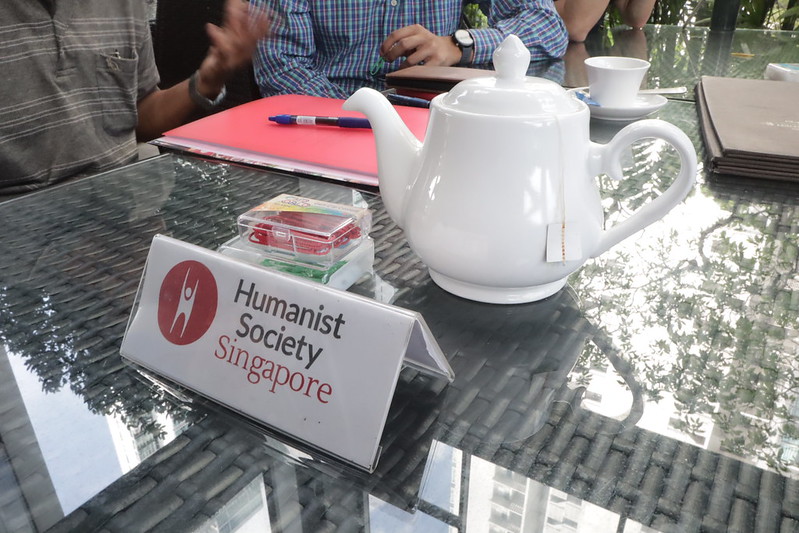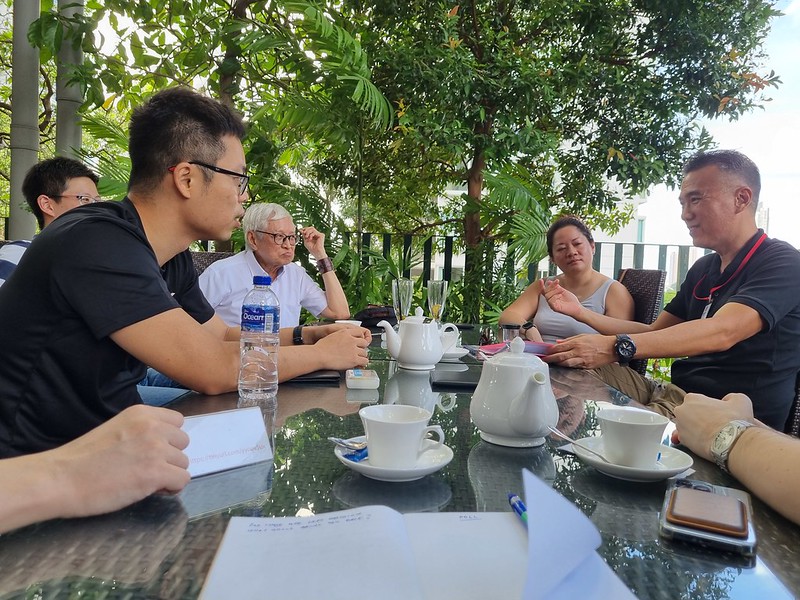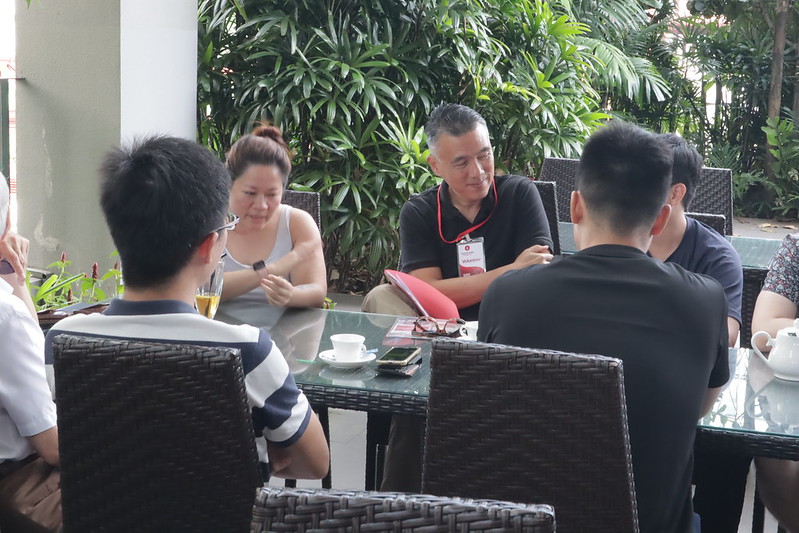Humanist Cafe is a monthly gathering aimed at providing peer support for the non-religious at multiple stages of life. Guided by facilitators, participants can share their life experience along one of the six themes marking life’s milestones (as of 2023). At the Cafe, you are able to give and draw support from fellow participants in the process.
The session on 26 February 2023 is themed “becoming a freethinker”. There are two broad parts to the discussion:
- Being a freethinker, and the challenges
- Sources of moral guidance for freethinkers
Being a freethinker and the challenges

It was a lively discussion. Overall, the difficulties faced by non-religious individuals can include navigating social and family pressures, grappling with personal disillusionment, feeling disconnected from religious rituals, and encountering challenges in relationships due to religious differences.
1) Social and Family Pressure
Many individuals mentioned challenges related to their families and social circles. The following were brought up by 5 participants:
- Fatigue with his family’s obsession with “praying for everything”
- Immense pressure from relatives to convert a parent before his death, which participant felt was hurtful and disrespectful
- For one former Muslim, fear of alienation and losing ties with family if he comes into the open
- For one expatriate, he faced difficulties in openly expressing his non-religious beliefs in a conservative town and had to hide his beliefs to maintain his job.
- One participant shared that their parents wanted his girlfriend to convert to Islam before they could get married.

2) Personal Disillusionment
Several participants expressed disillusionment with the religions they were exposed to or grew up with. The following was brought up by most participants.
- Contradictions in religious teachings
- Skepticism over the promised divine intervention,
- Highly illogical arguments that are simply not convincing
3) Cultural and Ritual Disconnect
Some individuals mentioned practicing religion due to cultural or family reasons rather than personal conviction. The following were brought up by 3-4 participants.
- One followed traditional Chinese folk religion “out of respect” but never found it personally comforting.
- Another highlighted the misuse of religion by politicians and leaders for their own agendas.
- One mentioned excessive chanting in Buddhism and extensive rituals in Taoism. So he left.

| Do you know? A similar Cafe in becoming freethinkers was held in 2022. The anecdotal experiences shared at the 2022 Cafe revealed two very different experiences undergone by freethinkers leaving Abrahamic and non-Abrahamic faiths. People who left Abrahamic faiths often experience a ‘hard landing’, starting with strong objections against its teachings, making a clean break from the faith and then experiencing external and internal struggles. People who left the non-Abrahamic faiths of Buddhism and Taoism, at least in the Singapore context, experience a more ‘gradual drifting’ away from the religion of their birth and usually do not encounter much opposition. |
Sources of moral guidance for freethinkers
It remains a widespread belief that the non-religious will have no moral compass without God. Cafe participants were asked for views regarding this misconception. The following points were brought up:
1) Have some trust in human nature
- Participants question the persistent assumption that “people will always do bad things” and religion is needed to stop that.
- In reality, most individuals have no incentive to do bad things.
- Some participants highlighted our “common humanity” as a guiding principle.
- They believed that universal human values form a solid foundation for ethical decision-making. Recognizing our shared humanity allows individuals to draw on the collective wisdom and moral insights.
2) Individualized Ethics
- Freethinkers emphasized the freedom to create their own set of principles instead of strictly adhering to commandments.
- All religious teachings are but a “supermarket of ideas”.
- By learning from various religions, individuals can incorporate the wisdom they find most meaningful and relevant to their own lives.
3) Embracing Uncertainty
- While acknowledging the importance of rituals for some individuals, the participants emphasized the need to teach and encourage people to become comfortable with uncertainty.
- They suggested that rather than relying solely on religious rituals, individuals should focus on cultivating a mindset that embraces the unknown and navigates life’s uncertainties with adaptability and resilience.




